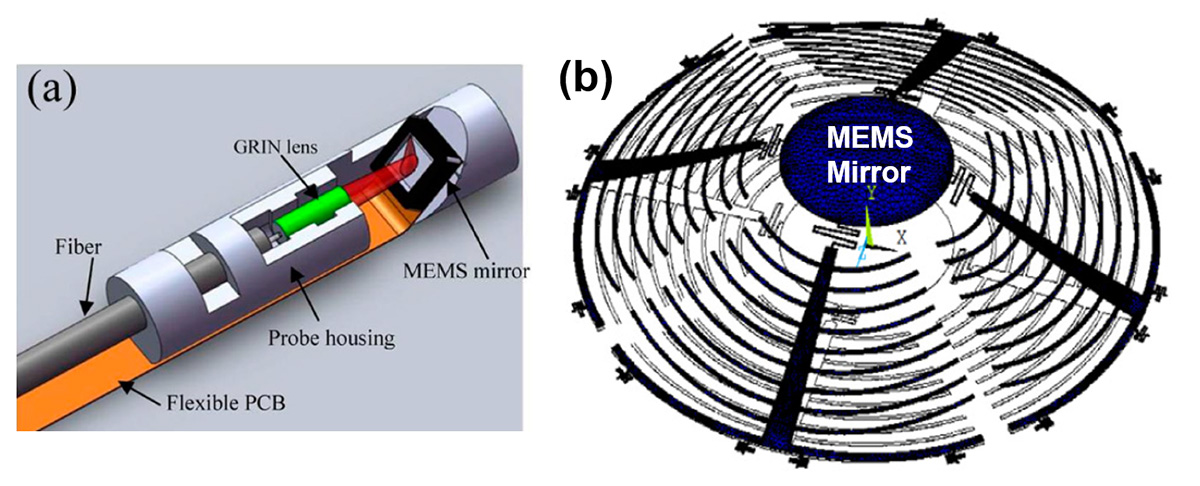Professor receives NSF grant to explore building better equipment for endoscopies
Professor Shahrzad “Sherry” Towfighian specializes in microelectromechanical systems and plans to use that knowledge to create a new kind of micromirror

According to the National Institutes of Health, more than 20 million endoscopies are performed in the U.S. every year to seek out problems such as tumors, polyps and ulcers in the digestive tract.
Giving a better view of those hard-to-reach places could be a lifesaver, and that’s why Binghamton University Professor Shahrzad “Sherry” Towfighian is excited about her latest research into improving endoscopy equipment.
Towfighian — a faculty member at the Thomas J. Watson College of Engineering and Applied Science’s Department of Mechanical Engineering — specializes in microelectromechanical systems (MEMS), which are microscopic devices with moving parts. Often produced in the same way that electronics are, MEMS are used in a variety of everyday devices such as cellphones and smartwatches.
Over the past 11 years, Towfighian has made key discoveries about self-powered shock and vibration sensors, more resilient accelerometers and “smart” knee replacements that generate their own energy through triboelectricity — using the friction from walking to power sensors and transmitters to monitor the knee’s performance.
Recently, she received a three-year, $550,000 National Science Foundation grant to develop tunable high-speed scanners using MEMS actuators. Her co-investigator on the project will be Assistant Professor Benyamin Davaji from Northeastern University’s Institute for NanoSystems Innovation (NanoSI).
To that goal, the researchers plan to combine their two areas of expertise to create a new kind of micromirror. Towfighian brings her knowledge of electrostatic levitation, which uses an electric field to lift charged objects, and Davaji has studied ferroelectric properties that can change the flexibility of materials using an electric voltage.
“The combined micromirror system will be the key component of an endoscope that will have better-resolution pictures, and that means we will be able to detect cancer at early stages,” Towfighian said. “Doctors can recognize the boundaries of the problematic growths more easily, and they can guide surgeries better with real-time images.”
She and her students will design the prototypes, and Davaji will build them using microfabrication techniques. Then they will be shipped to Binghamton for testing using a laser vibrometer and electric circuits.
“An important part of the research is about the motion of this device,” she said. “We need to characterize the motion on a micron scale, so that when we apply voltage to it, we know how it’s going to move and guide the reflecting light for taking real-time images.”
Once they have a proof of concept, the next stage could be joining a bigger team to seek funding from the NIH to incorporate their findings inside a micro-endoscope and test that, too.
“We need to discover the result of this combination and prove that our prototype works, and then incorporate it in an endoscopic device,” Towfighian said. “Hopefully we can change lives.”

